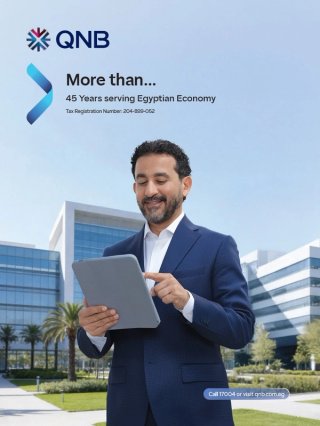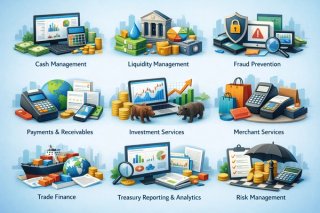How to protect staff wellbeing through COVID-19 and beyond
Published by Gbaf News
Posted on April 30, 2020
5 min readLast updated: January 21, 2026

Published by Gbaf News
Posted on April 30, 2020
5 min readLast updated: January 21, 2026

By James McErlean, GM, Europe, Headspace for Work
The banking industry is known for long hours, high pressure and a relentless pace evidenced by a recent study into mental health in financial institutions which found nearly a third of people (31%) are suffering from an anxious psychological state at work (Wellbeing at Work in the Banking Sector).
With the coronavirus pandemic bringing unprecedented change and uncertainty, feelings of stress and anxiety amongst the workforce are being exacerbated. Whether they are continuing to work from home, self-isolating, coming to terms with being furloughed or facing new work challenges, stress and anxiety on banking professionals is likely increasing.
In a changed society, where everyone is facing new pressures and learning to cope, employers in the banking and finance sector need to adapt. By creating awareness of mental health within working cultures, they can support employees through the current crisis and beyond.
Compassionate leadership
Leaders should respond with compassion, recognising people’s health is critical to business health.
The first step is to understand the challenges employees might be facing which professionally could include concerns of economic and job security, the impact on clients and basic connectivity to colleagues and managers. They might also be worrying about personal matters, such as looking after relatives or having to work at home while caring for children and pets.
Banks and financial institutions should ensure employees don’t feel guilty about taking time off , being careful that employees switch off for breaks and at the end of the day, and reinforce that they have flexibility to adjust working in line with new responsibilities such as caring for loved ones.
With finance professionals working new and unusual hours from home it is essential that managers maintain good levels of communication, both formal and informal to ensure staff are coping and able to focus.
Even when everyone’s working remotely, finance leaders should be checking in with teams on a regular basis, using video conferencing and instant messaging tools where possible to maintain a sense of normality, and working to identify any unsaid signs of stress and anxiety. We manage this through a combination of short stand ups and ‘good morning’ chats allowing teams to feel informed and emotionally connected.
Leaders should encourage employees to share how they’re feeling – whether they are worried about the future, struggling with their workload whilst at home, or if they are concerned about a vulnerable family member and the ongoing situation. Listening can sometimes be enough, but leaders should be aware of support tools available through HR teams, ready to point staff in the direction of techniques proven to help in managing negative feelings they might be experiencing.
Meditation and mindfulness in this time of crisis might initially seem like a strange tool to turn to, but in training the mind to be kinder and more understanding, there is a positive effect on working relationships. Now more than ever, it is important leaders treat working and personal relationships with kindness and compassion, looking after their employees and encouraging finance professionals to take care of their minds and not burn out.
The benefits of mindfulness
As a result of the altered working conditions and increase in pressure and uncertainty, companies could suffer from lost productivity, absenteeism and poor morale, impacting business continuity and reducing working standards. Evidence shows that mindfulness and meditation are indispensable tools for managing stress levels and anxiety and preventing some of these effects.
Studies have shown meditation can help people focus, switch between tasks less frequently and enjoy their work more. A scientific study has shown that using mindfulness for 30 days reduced stress by a third (32%), while improving focus by 14%. (Source) (Source)
The good news is this doesn’t need to involve much employee time and is perfect for doing at home. It can be as simple as taking a couple of minutes to breath, reset and regain perspective. With so much worry on people’s minds, taking a short amount of time to practise self-care is more crucial than ever.
Stress will be a familiar feeling for banking professionals, but it can be understood and managed. Through practising mindfulness techniques, employees can train the mind to be less reactive, less prone to chase thoughts and therefore able to reframe stressful situations. Instead of being caught up in our stress, meditation teaches us to become the observers of certain mental patterns and become less physically affected by them.
This isn’t something banks and finance companies should look to as a “quick fix” in the current climate and even when looking through the lens of the current climate, the mind is complicated – experts are noting that our experiences today will stay with us past the end of lockdown (Source). Mindfulness should form part of long-term initiatives to improve employee mental health, in the workplace and beyond.
Beyond the crisis
Looking beyond the pandemic, mindfulness & meditation has a vital role to play in combatting stress and anxiety among finance professionals.
Of course, the industry will always be a high-pressured and fast-paced environment, with individuals pushing themselves physically and mentally to deliver results for their companies and clients.
By practicing mindfulness and meditating, employees can become more aware of their stress levels, without being overwhelmed by them. They will also learn to identify stress triggers and approach those situations more mindfully – leading to a healthier, happier higher performing workforce.
Headspace has made some of their resources for businesses accessible for free as well as launching a specially curated “Weathering the storm” collection of meditation and mindfulness content to help individuals find some space and kindness for themselves, and those around them during the coronavirus pandemic. Head here to find out more.
Explore more articles in the Banking category











